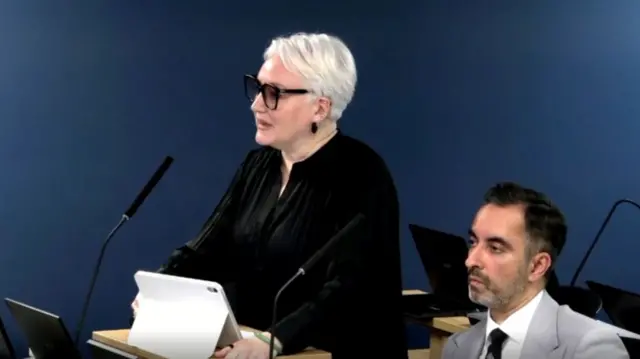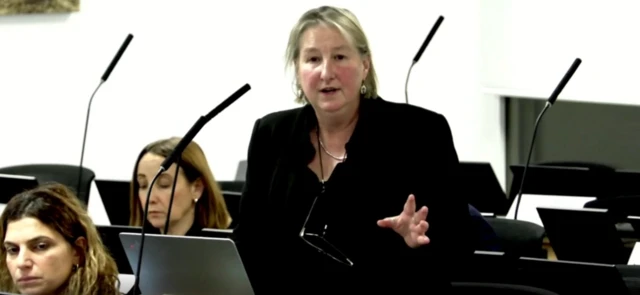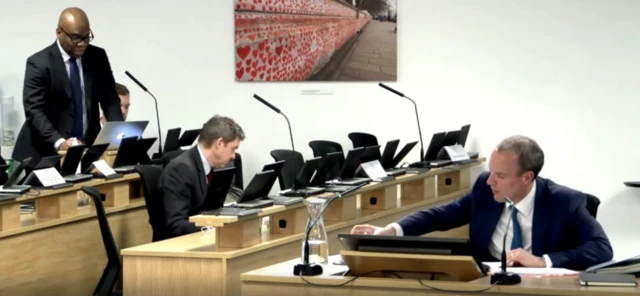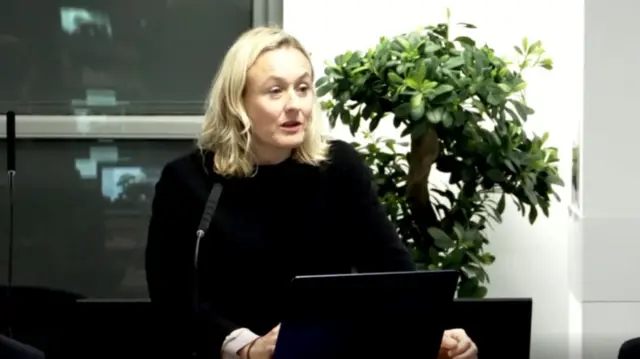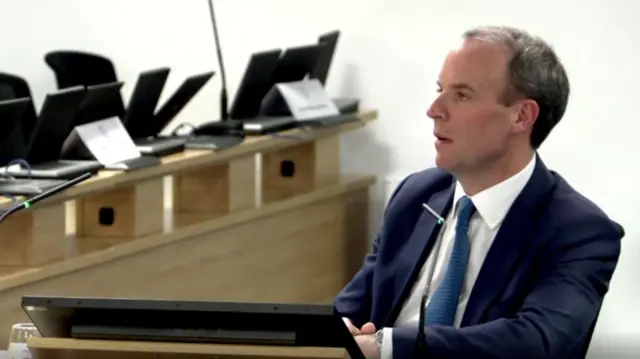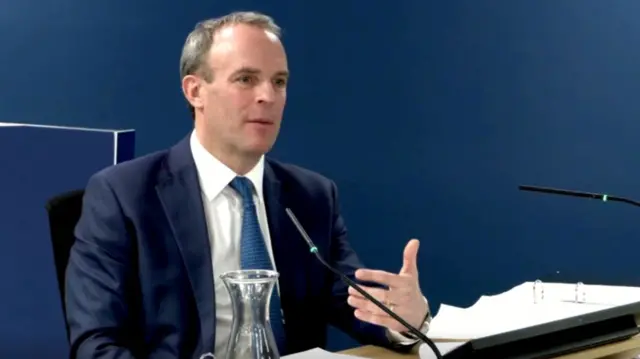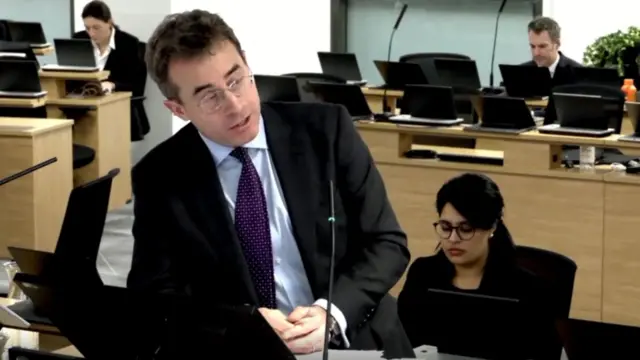We're bringing our live coverage to a closepublished at 17:45 GMT 29 November 2023
Thank you for joining our live coverage of today's Covid inquiry hearing.
Join us tomorrow when it's the turn of former health secretary Matt Hancock to give evidence to the inquiry.
Questions will begin at 10:00 GMT and will continue into Friday morning.
You can read more about today's evidence here.


